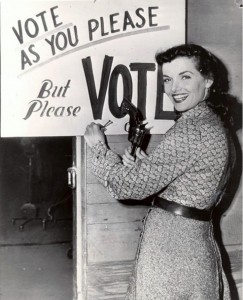Voters can visit the campaign websites of State House 157 candidates Paul Drucker and Warren Kampf and read about the issues . . . explore how the candidates feel about jobs, economy, spending, education, environment, etc. Using social media as an integral component of their campaigns, the candidates suggest that you follow them on Twitter, become their Facebook fan . . . sign up for email updates, etc. Drucker and Kampf give voters contact information including special campaign email addresses and encourage questions or comments from the public. Just this week, Kampf tweeted, “. . . if you have any questions or comments feel free to contact the campaign at contact@warrenkampf.com.”
Representing Community Matters, I recently contacted each of the candidates through their campaign websites. Based on Community Matters discussion and questions posed from readers, my questions to Drucker and Kampf were straightforward and non-confrontational. Candidates encourage questions from the public so I asked each a question and the results are in . . . below are the questions that I posed to Drucker and Kampf and their respective responses.
Recently, Drucker presented a $1 million check from the Redevelopment Assistance Capital Program to Strategic Realty for phase 1 funding of the Paoli Transit Center. In the press release, Drucker stated that the project would “. . . ultimately create more than 5,000 construction jobs and more than 2,000 permanent jobs in Paoli.”
My question to Drucker: Could you please provide the analysis for the 2,000 permanent jobs in Paoli that would be provided by the Paoli Transit Center Project?
Peter Monaghan, president of Strategic Realty provided Rep Drucker with further details on temporary job and permanent job estimates for the Paoli Transit Center Project. Estimates for permanent job creation are based on the square footage of planned office, retail and residential space. The private development component of the Paoli Transit Center project will yield approx. 300,000 sq. ft of office space, 75,000 sf of retail space and 525,000 sf of residential space. The formula for permanent jobs is as follows:
- Retail: 75,000 sf @ 1 job/500sf = 150 jobs
- Office: 300,000 sf @ 1 job/200sf = 1,500 jobs
- Residential: 525,000 sf @ 1 job/10,000sf = 53 jobs
- Transit: 50 jobs
A recent post on Community Matters prompted 80+ comments (including Phoenixville Councilman Ken Buckwalter). The subject of the post – the current FBI investigation of local attorney Jeffrey Rotwitt for his role in the Family Court land development project scandal in Philadelphia. In April, Rotwitt hosted a campaign fundraiser for State Rep candidate Warren Kampf. As a result of Kampf’s association with Jeffrey Rotwitt, Rep. Drucker released a statement calling for Kampf to return of money raised at the Rotwitt fundraiser. Hoping to provide Kampf an opportunity to respond to Drucker and to the resident’s interest in the topic, I contacted Kampf for a response.
My question to Kampf: Do you have an official response to Mr. Drucker concerning the FBI investigation of Mr. Rotwitt and money raised at your April political campaign fundraiser hosted by Mr. Rotwitt?
Unfortunately, there was not a response to my email by Kampf nor any acknowledgement of my communication. Not receiving a reply, I sent a follow-up email that repeated the question . . . to date, there remains no response. For me, I am left to wonder why Mr. Kampf sent this tweet to his followers “. . . if you have any questions or comments feel free to contact the campaign at contact@warrenkampf.com.”
